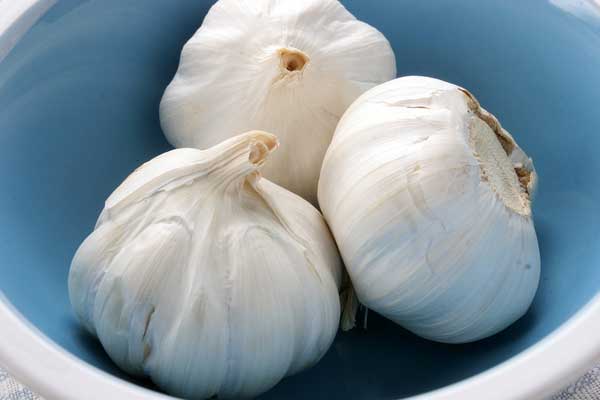High blood pressure, also known as hypertension, is a serious health condition that affects millions of people worldwide. When left uncontrolled, high blood pressure can lead to heart disease, stroke, kidney failure and other health complications. The good news is that making lifestyle changes like eating a healthy diet, exercising regularly, limiting alcohol intake and quitting smoking can help lower blood pressure. Additionally, incorporating certain herbs and spices into your diet may provide blood pressure lowering benefits. Here are 6 of the most surprising and effective spices and herbs for lowering blood pressure naturally.

1. Fermented Long Pepper
You may not have heard of long pepper before, but this traditional Chinese herb shows promise for lowering blood pressure. Long pepper contains a compound called piperine, which is also found in black pepper. Piperine has been shown to help improve the absorption of nutrients and phytochemicals. However, what makes fermented long pepper unique is that studies indicate the fermentation process enhances its natural blood pressure lowering effects.
During fermentation, compounds like polyphenols can become more bioavailable and easier for our bodies to absorb. Essentially, pre-fermenting long pepper can allow it to work even better. Research suggests that regularly consuming fermented long pepper can help reduce blood pressure by improving the health and function of blood vessels. The gut bacteria ferments many compounds as they pass through our digestive system. However, consuming pre-fermented long pepper ensures maximum benefits.
2. Rosemary
Rosemary is an aromatic herb that is part of the mint family. It has a distinctive pine-like scent and flavor that enhances many dishes. However, rosemary may also help protect your heart health. The Mediterranean town of Acciaroli, Italy has an unusually high number of centenarians, people who live over 100 years. One thing they all have in common is high rosemary intake. The residents of Acciaroli cook with rosemary, chew the needles and drink rosemary tea regularly.
Scientists believe unique compounds in rosemary called carnosic acid and rosmarinic acid are responsible for its health benefits. Carnosic acid helps dilate blood vessels while rosmarinic acid functions as a natural antihistamine. Additionally, rosemary contains antioxidants that help lower LDL or “bad” cholesterol levels. Some research shows rosemary extract has mild diuretic effects to lower blood pressure as well. Try adding fresh rosemary to meals, drinking rosemary tea or taking rosemary extract supplements to boost your intake.
3. Basil
Sweet basil is an exceptionally healthy herb. Part of the aromatic mint family, basil contains a variety of vitamins, minerals and plant compounds. Basil is especially high in vitamin K. In fact, it’s one of the best sources of both vitamin K1 and vitamin K2. Vitamin K is important for blood clotting and bone health. Basil is also packed with potassium, a mineral critical for blood pressure regulation.
Getting enough potassium helps balance sodium levels, supporting healthy blood pressure. Basil has prebiotic fiber that feeds good gut bacteria which make important compounds that support heart health. Nitric oxide, hydrogen and hydrogen sulfide generated by gut bacteria all help dilate blood vessels and lower blood pressure. Finally, studies show that compounds in basil can help lower LDL cholesterol. Add fresh basil to your diet by using it to make pesto or adding it to salads, soups and stir-fries.
4. Garlic
Garlic is well known for its culinary uses, but it also offers major health benefits, including blood pressure reduction. In 2019, a study in Experimental and Therapeutic Medicine confirmed that aged garlic extract supplements can significantly lower systolic and diastolic blood pressure. Even more impressively, it found that garlic supplements could lower cardiovascular disease risk by a whopping 16 to 40%.
Additional research tracked 55 patients aged 40-75 taking aged garlic extract daily for 1 year. By the end of the study, participants had an average 80% reduction in soft plaque buildup in the arteries. Garlic contains unique sulfur compounds that benefit heart health in various ways. They appear to reduce inflammation, arterial plaque, LDL cholesterol and blood pressure. While raw garlic, powdered garlic and garlic oil offer some benefits, aged garlic extract seems to work best. Consider taking an aged garlic supplement or chewing 1-2 raw garlic cloves daily to boost cardiovascular protection.

5. Ginger
Ginger comes from the root of the Zingiber officinale plant, and it is popularly used as a spice and natural remedy. Ginger contains bioactive compounds like gingerol that make it a potent anti-inflammatory food. Chronic inflammation damages blood vessels and leads to high blood pressure. The results of a 2015 study suggest daily ginger supplementation substantially reduces blood pressure, even in people already taking antihypertensive medication.
Another study found taking ginger powder capsules significantly lowered heart rate and systolic blood pressure during cardiac stress tests compared to a placebo. Ginger appears to enhance blood circulation while relaxing tightened blood vessels. Drinking ginger tea, using ginger powder in recipes and taking ginger extract supplements are easy ways to add it to your routine. Pair ginger with turmeric, another anti-inflammatory spice, for maximum benefits.
6. Cinnamon
Cinnamon is a comforting spice made from the bark of tropical evergreen trees. It contains antioxidants called polyphenols that mimic insulin and improve insulin sensitivity. Better insulin function means healthy blood pressure levels. According to a meta-analysis of 10 clinical trials with over 500 participants, taking cinnamon extract consistently reduces systolic and diastolic blood pressure in patients with type 2 diabetes.
Even in healthy adults, supplementing with cinnamon extract seems to lower systolic blood pressure. It’s believed that cinnamon enhances nitric oxide levels to relax blood vessels and reduce blood pressure. Try sprinkling cinnamon on coffee, oatmeal, fruit, smoothies and other foods. You can also drink cinnamon tea or take cinnamon extract supplements if you notice they lower your blood pressure.
Conclusion
Elevated blood pressure affects 30-40% of adults, but the good news is making diet and lifestyle changes can help control it. Incorporating more fresh herbs and spices with blood pressure lowering effects into your routine is a tasty way to benefit your heart health. Compounds in fermented long pepper, rosemary, basil, garlic, ginger and cinnamon all appear to promote lower blood pressure. Consume these herbs and spices daily in your cooking, in teas, by taking supplements or using their essential oils. Pair these natural remedies with a balanced diet, activity and stress reduction to optimize your blood pressure and overall health.
